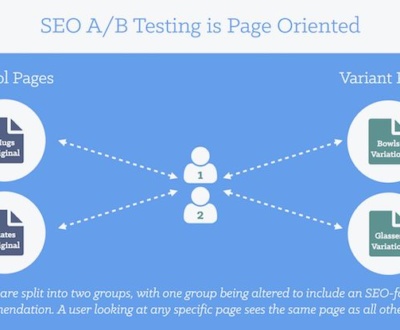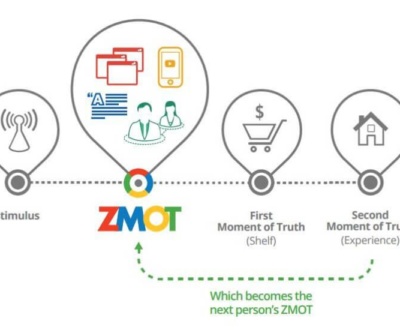The Biggest Ranking Factors for SEO in 2017

Keeping up with the latest SEO updates from Google is full-time job. However, the updates are easier to comprehend because the new “best practices” are really just common sense for anyone in content marketing.
The days of old when you could stuff a crappy 8,000-word blog post with keywords, send it to a link farm, and crank out some spammy guest posts that have zero relevance to your product or audience are long, long gone. Moving into 2018 and beyond, the focus is where it should be: creating consistent, quality content. No tricks. No gimmicks. Here are the four areas you should focus on long after the New Year
4 Relevant Old School SEO Tactics You Should Use
- Linkbuilding
What linkbuilding used to be.
In the ‘90s you couldn’t click on a page without being visually assaulted by a wall of bright blue hyperlinks, a la AOL and Yahoo. No doubt studies exist on how that specific shade of blue is responsible for the deterioration of ocular health in entire generations.
The reason behind the Great Wall of Hyperlinks was that Google, in all its innovative glory, realized that (drumroll) people navigated the web by clicking on links. It blew our mind too. Here’s the big revelation that came from that flicker of brilliance: Google could approximate the relative popularity of pages by looking at those links.
How we took it too far.
As we in SEO tend to do as an industry, we took the concept of linkbuilding too far. With every business in the world searching for shortcuts to “beat Google,” the focus became quantity of links, not quality of links. Linking is not a numbers game anymore. In 2017 more than ever, you need to focus on having relevant and diverse sources that link to relevant pages.
How to build links in 2017.
According to this article in Search Engine Land, “In terms of quantity, your primary focus should be the number of linking domains.” Relevant and diverse sources. The second factor is link quality.
How Google defines the “quality” of links is still a gray area. We do know that page rank and relevance weigh heavily. Invest in content that can be used for webpages, blog posts, landing pages for ads and lead gen, and guest posts on other sites. Great content will consistently drive links over time: both links that your site directs to in order to naturally support your content and links from others to your site.
- Deep Linking
What is deep linking?
If you’re unfamiliar with the term, “deep linking” refers to a link that directs to a specific, indexed, piece of web content on a website that is not the homepage. The Google overlords have long deemed excessive inbound links to a homepage as spam, so deep links have become increasingly important.
Why is deep linking relevant to SEO?
A regularly updated blog is a treasure trove of deep links and deep links-to-be. When another site or individual (think social media) links to one of your old posts, the action signals to Google that your old content is still relevant to date. The relevant keywords in your old content then continue to count towards your ranking in present day. This is, again, why maintaining a blog and consistently publishing new content is so critical to any SEO strategy.
How do you leverage deep links for SEO in 2017?
Content, content, content. “You should always try to attract natural deep links to your post, or naturally build links,” writes internet marketer and full-time blogger Akshay Hallur on Go Blogging Tips. He suggests that marketers write quality content above all else and “when writing a post, present a unique fact. Highlight it. Add blockquotes to it. It increases the chances of other bloggers citing you on their blog.”
Other tips include sharing posts on social media sites like Facebook, Twitter, and LinkedIn. You can also repurpose your old content by converting blog posts into slides or videos and then linking to the original article.
- Content
The “quantity over quality” myth.
Individuals looking to game the SEO ranking system will consistently rank quantity over quality. Google has historically prioritized longer content, so most companies still operate under the impression that you need to have a specific word count when publishing content. Is longer still better?
Quality content is better, no matter the length. Google has prioritized the user experience as it relates to content. Google wants to see that your audience is engaged, clicking on CTAs at the end of your blog post, visiting suggested links, moving through your website. If your reader doesn’t get through your post, it’s unlikely that they’re going to want to click on more.
Content length is directly related to user experience. If your content is too long to be engaging, you’re not helping your business by converting clicks to leads.
“Given [the user experience trend], the odds are that as Google gets better at discerning great on-page experiences with the ho-hum ones, many pages with a lot of text but little value will start dropping through the ranks,” writes Jacob Baadsgaard on the Kissmetrics blog.
Content is the new SEO.
Since it was first introduced in 2011, Google’s Panda algorithm has been getting better at detecting content that does not help users. Nowadays, if you have poor content, it is possible you may face a Google penalty, so keep focusing on content that your users actually want to read.
How to pick topics for your audience.
Search for volume and the competitiveness of long tail keywords to get topic ideas for your niche or product. Find these keywords by answering questions that your consumers or target customer base are asking: asking in forums, review pages for similar products, or on social media.
Social insights are fantastic way to discover what topics resonate with your audience. “Use social data to understand the right content that should be delivered within a message so it’s personalized, relevant, and engaging,” writes Heidi Besik in Search Engine Journal.
Leveraging social insights helps marketers understand their audiences. This makes makes content creation more efficient and relevant, in turn giving your website search love from new traffic and from Google.
- Guest Blogging
How guest blogging got a bad reputation.
Guest blogging is yet another example of a “no brainer” SEO practice that has been used and abused by aggressive blackhat SEO strategists. Today, guest blog posts are associated with terrible content and an abundance of useless links, which make the audience roll their eyes.
There have long been rumors that guest blogging was on its way out. Matt Cutts, former head of Google’s web spam team, announced that guest blogging was “done” in 2014 writing on his personal blog, “It’s just gotten too spammy… I wouldn’t recommend relying on guest posting, guest blogging sites, or guest blogging SEO as a linkbuilding strategy.”
Let that serve as a warning to blackhat SEO junkies, but don’t let that stop you from leveraging a guest post in a meaningful, relevant way. If you stay authentic to your brand and true to your audience, you have nothing to worry about.
Why guest blogging is still relevant.
Guest blogging is still a viable strategy for ethical marketers who want to write and promote high-quality content. Apart from natural links, guest posting has many other benefits:
“When done correctly, guest blogging gets you in front of a new audience who would never have otherwise ‘met’ you,” writes Josh Rampton in Forbes. “It also helps establish you as an expert in your field, and can lead to increased brand recognition. Finally, it can help boost referral traffic, often meaning increased leads or even sales.”
How to properly guest post.
You’re going to need to bring your content A-game. If possible, attempt to create content that is 10x more relevant and more valuable than the content that is on your own site. Great content sparks conversation and spurs action. Also link to something other than your homepage, like blog posts or — even better — other guest posts you’ve done with relevant sites. Links shouldn’t be your only motivation. If you wouldn’t post on the site if knew you were going to get any links then you’re posting for the wrong reasons.
Visit our about page - woodleymarketing.com/about/
About us and this blog
We are a digital marketing company with a focus on helping our customers achieve great results across several key areas.
Request a free quote
We offer professional SEO services that help websites increase their organic search score drastically in order to compete for the highest rankings even when it comes to highly competitive keywords.
Subscribe to our newsletter!
Recent Posts
- Are You Still Using These Black Hat SEO Tactics? August 17, 2017
- The Biggest Ranking Factors for SEO in 2017 July 27, 2017
- Do No Harm: How to Become a Modern Monopoly July 15, 2017








